Crystal Bridges opens “Angels & Tomboys” and “Surveying George Washington” exhibits

PHOTOS / TARAF ABU HAMDAN
Two temporary exhibitions opened on June 29 at Crystal Bridges Museum of American Art will feature different subjects and eras in American history, yet both shed light on important time periods that changed the way Americans viewed themselves and their futures. Angels & Tomboys: Girlhood in 19th-Century American Art focuses on the period following the Civil War in which artists began to emphasize the importance of children, and particularly young girls, as the symbol of hope for a nation damaged and divided by war. Exhibited concurrently, Surveying George Washington features an assortment of historical documents on loan from The Harlan R. Crow Library in Dallas, TX, including documents written by Washington himself, or by contemporaries who knew him. Both exhibitions will be on view through Sept. 28.
ANGELS & TOMBOYS
Angels & Tomboys: Girlhood in 19th-Century American Art explores the myriad ways artists portrayed young girls: from the sentimental, innocent stereotype to the free-spirited individual. In the aftermath of the Civil War, although the culture still prized the demure female child of the past, many saw a bolder type as the new, alternate ideal. Girlhood was no longer simple, and the complementary images of angel and tomboy emerged as competing visions of this new generation. The exhibition includes approximately 72 masterworks, including paintings, sculpture, prints, and photographs. Works by John Singer Sargent, Winslow Homer and Thomas Eakins, together with those by leading women artists, such as Cecilia Beaux and Mary Cassatt, reveal a new, provocative psychological element not found in early Victorian portraiture; while the mischievous tomboys in Lilly Martin Spencer’s paintings and the pure angels in the works of Abbot Handerson Thayer underscore the complexity of girlhood.
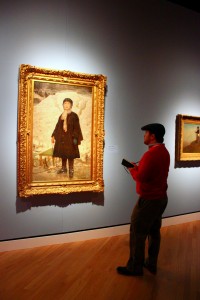 “Children, especially girls, were often the subject of post-Civil War paintings, as they represented the future and moving forward as a nation reunited,” explained Kevin Murphy, Crystal Bridges’ curator of American art. “These are the girls who became the New American Woman, and what they were able to accomplish after the Civil War lead to a certain amount of freedom for subsequent generations. The girls depicted in these artworks grew up to be the mothers of suffragettes, and the grandmothers of women like Rosie the Riveter, represented in the Norman Rockwell work in our permanent collection.”
“Children, especially girls, were often the subject of post-Civil War paintings, as they represented the future and moving forward as a nation reunited,” explained Kevin Murphy, Crystal Bridges’ curator of American art. “These are the girls who became the New American Woman, and what they were able to accomplish after the Civil War lead to a certain amount of freedom for subsequent generations. The girls depicted in these artworks grew up to be the mothers of suffragettes, and the grandmothers of women like Rosie the Riveter, represented in the Norman Rockwell work in our permanent collection.”
Angels & Tomboys is organized by the Newark Museum and was previously exhibited at the Memphis Brooks Museum of Art. It is sponsored at Crystal Bridges by Boyce Billingsley, Greenwood Gearhart Inc., Meza Harris, and NWA Media/Arkansas Democrat-Gazette. Tickets are $5 for adults. Thanks to our sponsors, tickets for youth ages 18 and under are free. Museum Members receive free admission to all exhibitions. Tickets may be purchased online or at Guest Services.
A full range of public programs, from curator talks to the museum’s award-winning Art Night Out event, will be offered in conjunction with the exhibition.
MORE INFORMATION HERE.
SURVEYING GEORGE WASHINGTON
Surveying George Washington is the second of an ongoing series of exhibitions featuring historical documents pertaining to the Museum’s mission and collection. This year’s exhibition features an assortment of documents written by Washington himself, or by contemporaries who knew him, on loan from The Harlan R. Crow Library in Dallas, TX. The aim is to provide a look at Washington that offers insight into his life as a real person, not just a historical figure. The exhibition will feature documents spanning the breadth of Washington’s life, including, among others, a land survey prepared by Washington at age 19; a hand-written letter to General John Cadwalader of the Pennsylvania militia, appealing to him for troops to continue the push against British outposts in New Jersey during the War for Independence; and a hand-written letter by Washington’s private secretary Tobias Lear, announcing Washington’s death in 1799. Also included is a first edition of George Washington’s Last Will and Testament, printed from the record of the County Court of Fairfax, 1800.
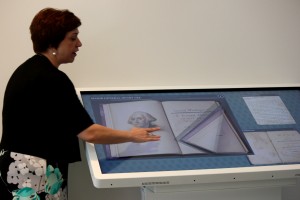 “George Washington’s life was rich and varied. Many of us know he was a farmer, but he was also a pioneer in agricultural science,” said Crystal Bridges Director of Education and Exhibitions Niki Stewart. “We know he was a soldier, but we may not remember that his military career began in the British forces. This exhibition gives us the chance to learn a little more about the father of our country, through his words and the words of those who knew him well. It’s a wonderful chance to see rare historic documents paired with works of art and create a new impression of George Washington in our minds.”
“George Washington’s life was rich and varied. Many of us know he was a farmer, but he was also a pioneer in agricultural science,” said Crystal Bridges Director of Education and Exhibitions Niki Stewart. “We know he was a soldier, but we may not remember that his military career began in the British forces. This exhibition gives us the chance to learn a little more about the father of our country, through his words and the words of those who knew him well. It’s a wonderful chance to see rare historic documents paired with works of art and create a new impression of George Washington in our minds.”
A touch-screen kiosk accompanying the exhibition will offer guests the opportunity to virtually handle a few key documents in the exhibition.
MORE INFORMATION HERE.
Click a photo to launch the slide show.
[AFG_gallery id=’31’]
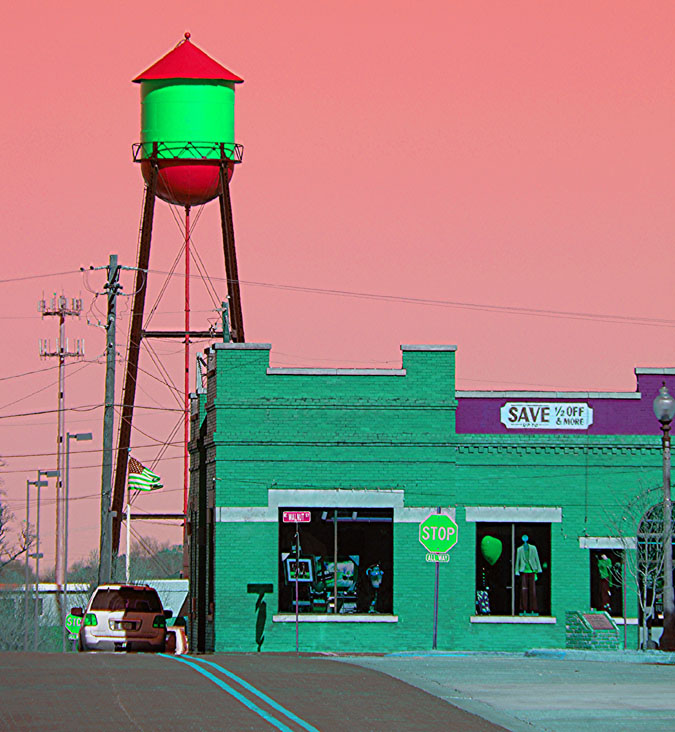
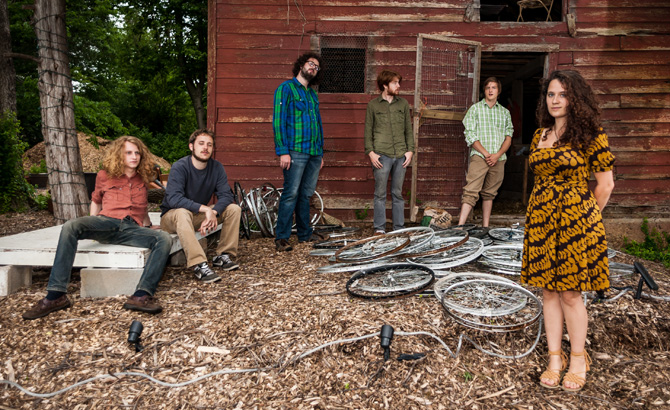

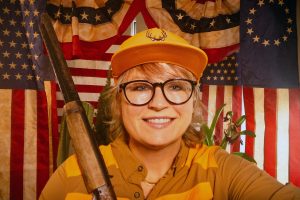

Comments
Comments are closed.